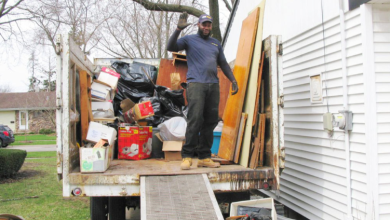The Role of Therapy in Healing Parental Alienation

Introduction
Parental alienation is a hostile pattern of interaction in which a child refuses contact with one parent without reason. This rejection is usually caused by psychological manipulation by the favored parent. This type of alienation requires therapeutic intervention to enable reconstruction of the parent-child relationship. Consequently, this article discusses the significance of therapy in the process of treatment for parental alienation.
Defining Parental Alienation
What is Parental Alienation?
Parental alienation syndrome (PAS) is a process through which one parent instills in the child negative feelings and attitudes toward the other parent. It’s common to witness it during spousal separation and dissolution of any kind of partnership. These acts may include belittling the other parent in front of the child, denying visitation rights, trying to turn the child against the other parent, and falsely reporting that the other parent abuses or neglects the child. In the long run, the child develops a sense of rejection and animosity towards the parent who is being targeted.
Effects on the Child
When parents are involved in a high-conflict, it can negatively affect the child’s psychological development through parental alienation. Children may be facing such issues as low self-esteem, depression, anxiety, lack of trust, substance abuse, relationship issues and many others. They also lose the valuable guidance and affection of the parent who has been turned away. Parental alienation, if left without intervention, speaks volumes into adulthood with its poisonous impacts.
The Therapist’s Role
Building Trust
Building rapport with the child is important in the course of the therapy. Parental alienation makes children develop negative attitudes towards mental health practitioners especially when they have been manipulated. To address this issue parental alienation, therapists need to establish rapport with the child by showing that they care for him/her and are concerned about his/her past experiences. Trust can be seen as a cornerstone of recovery.
Educating About Manipulation
Thus, one of the significant aims is to help children recognize the ongoing mental control in the situation of parental alienation. With this kind of relationship established, therapists can assist kids to identify abusive manners, lies, triangulation strategies and how the preferring parent hurts the bond between the kid and the other parent. Rising awareness at a slow pace enables the kids to analyze a situation instead of being easily misled.
Teaching Coping Skills
The therapist also educates the parties on appropriate ways of handling conflicts, assertiveness, positive approaches to handling stress, ways of practicing effective communication, and assertion techniques. These skills assist children to deal with the abusive family relationships and prevent other forms of manipulation and abuse. This is because the alienating parent will have coached the child on how the other parent should be viewed and healthy responses will be missing.
Facilitating Reconciliation
Thus, on the one hand, the child is allowed to exercise self-determination while, on the other hand, the therapist tries to prepare the ground for the child’s restoration of relationships with the rejecting parent. This entails changing misconceptions, eradicating phobias, working through the feelings of grief, revisiting happy memories, focusing on positive characteristics of the parent, and cultivating hope for reunion. Family therapy can help in this reconciliation process.
Providing Validation
Within the course of the counseling therapy, the counselor reassures the child and informs him or her that he or she is not alone in going through such thoughts and/or experiencing such difficulties and emotions. PA makes children feel lonely and guilty about the family separation when they have their parents’ support. The help and encouragement that patients receive from a therapist eliminate these burdens.
Conclusion
It might mislead and manipulate the child in terms of family relationships, and disrupt the essential connection between a child and their parents, thus being highly traumatizing to the child. Thus, professional therapeutic handling is required to assist the children to identify manipulation and at the same time, work on restoring and repairing relationships. Therapists are thus able to effectively counter parental alienation by providing the children with mental/emotional support in addition to education and skills.









